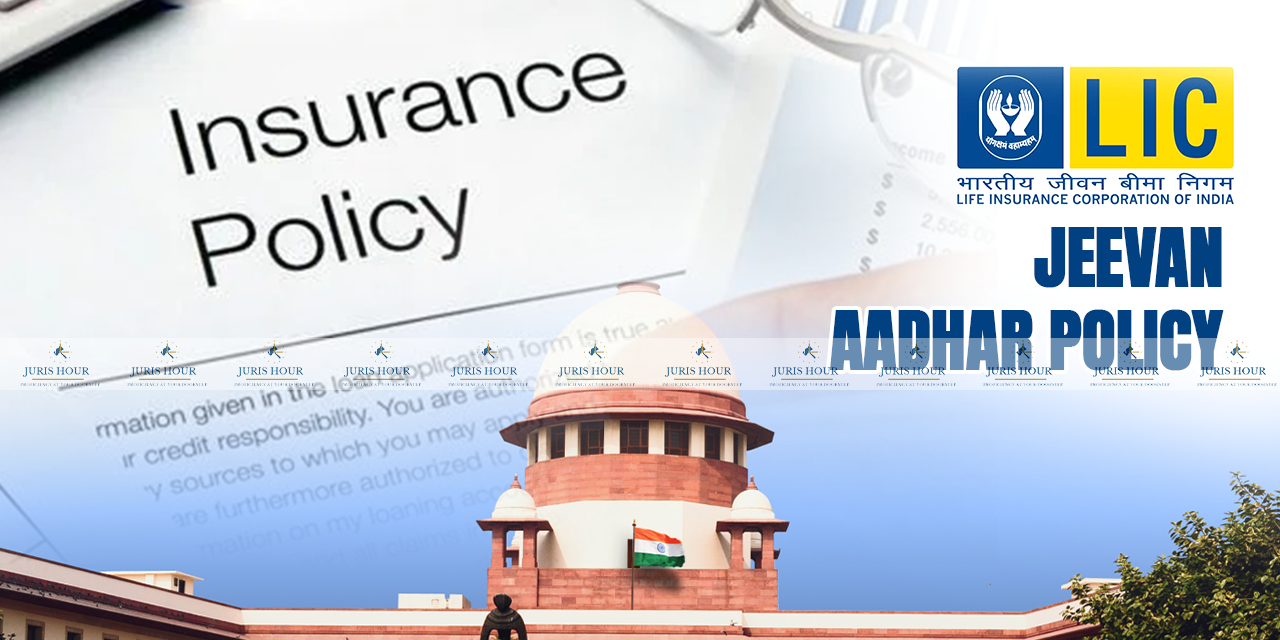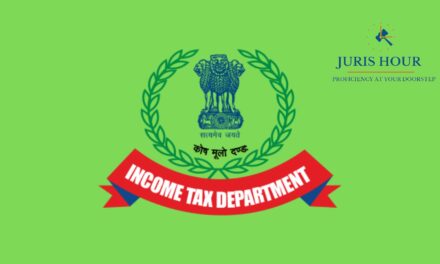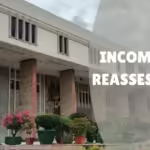The Supreme Court has dismissed the writ petitions seeking retrospective effect to the 2023 amendment into 80DD of the Income Tax Act regarding the Jeevan Aadhar Policy.
The bench of Justice B.V.Nagarathna and Justice Nongmeikapam Kotiswar Singh has observed that the plea for retrospective operation of the amendment is neither in the interest of the disabled persons nor can this Court give a retrospective operation to the amendment. This is particularly having regard to the fact that an insurance contract is in a sense, a commercial contract, having certain terms and conditions and the sub-stratum of the contract cannot be removed by giving a retrospective operation to the amendment. The benefit under Section 80DD of the Income Tax Act would have been availed by the subscribers at the time when they have subscribed to the policy.
The concerns expressed by the petitioner in the writ petition have been assuaged to a certain extent inasmuch as the Parliament has amended Section 80DD of the Income Tax Act, 1961.The provision deals with payment of annuity of a lump sum amount for the benefit of a dependant, being a person with disability, in the event of death of the individual or the member of a Hindu Undivided Family (HUF) in whose name the subscription to the scheme stipulated in the provision has been made.
The petitioner contended that the Parliament has amended Section 80DD of the Income Tax Act in terms of Section 21 of the Finance Act,2022. Consequently, on attaining the age of 60 years or more by an individual subscriber or a member of an HUF, the payment or deposit to the scheme envisaged under Section 80DD can be discontinued and the monetary benefit which would have accumulated can be made use of. The amendment ought to be made retrospective as the same is with effect from 01.04.2023 to the existing policies as it will benefit a large number of subscribers who are interested in making use of the benefit of the policies for the benefit of the disabled persons on turning 60 years of age. An option could be reserved to the subscribers to have the benefit of the amendment in respect of policies which were made much prior to 2014 as in the year such policies have been discontinued. If the amendment is given a retrospective effect, many subscribers as well as disabled persons would benefit and hence the concerns of the petitioner being purely in public interest may be considered and relief may be granted.
Read More: https://jurishour.in/amendment-finance-bill-scope-udi-extended-claim/
The department contended that Section 80DD refers to a situation where the benefit of the policy would be provided to a disabled person only on the death or demise of the caregiver or the subscriber. The event at which the benefit of the policy would be given to the disabled person is on the death of the subscriber. It is only then the policy would come to end and the monetary benefit would be given to the disabled person. There is a salient object with which the terms and conditions of the policy have been adevised. Having regard to the order of this Court on 03.01.2019, there has been an insertion of a clause under Section 80DD taking into consideration the concern expressed by the very same petitioner in the earlier writ petition and to that extent, amendment has been made. But it is too far fetched for the petitioner to seek retrospective operation of the amendment to the existing policies. The terms of the policies cannot be changed subsequent to their crystallization and the premiums being paid on the said terms. Therefore, there can be no retrospective operation of the amendments.
The court noted that the whole object of Jeevan Aadhar Policy is to benefit disabled persons by making provision by the subscriber post his demise. The concern and apprehension of a caregiver or subscriber of a policy for a disabled family member or other person for whose benefit the policy is taken after the demise of the caregiver is of utmost significance. It is only with that object that the caregiver or a subscriber would take such a policy so that he would not leave a disabled person in the lurch on his demise.If that is the object of the policy then the subscriber or the caregiver of the subscriber should not be given the liberty to discontinue the policy during his lifetime on attaining 60 years of age. That would only go against the object with which the policy has been taken and against the interest of the beneficiary, namely, a disabled person.
Case Title: Ravi Agrawal Versus Union Of India
Case No.: Writ Petition (Civil ) No .706 Of 2020
Date: 20/08/2024











